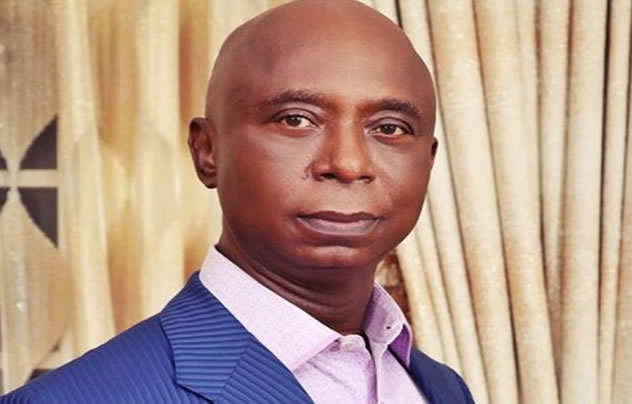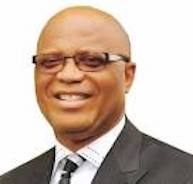Uncategorized
Students Loan: FG Explains Delay in Take-off, Sets New Date

The Federal Government has set the month of March for a definite opening of the Nigeria Education Loan Fund (NELFund) portal for eligible students.
Dr Akintunde Sawyerr, Execute Secretary NELFund, who disclosed this in an interview with newsmen on Thursday in Abuja urged eligible students to register to access the fund.
President Bola Tinubu on June 12, 2023, signed the Access to Higher Education Bill into law to enable indigent student access interest-free loan to pursue their education in any Nigerian tertiary institutions.
The scheme was slated to commence between September and October 2023, but because of unforeseen circumstances, there was a revised timeline to January.
Giving reasons for the delay in starting the scheme as earlier scheduled, Sawyerr explained that the process is technically driven and necessary measures needed to be put in place for proper execution.
“The take-off date is this month (March) and the reason for the delay is that we are trying to get it right.
“This is not a political programme where we say, oh! we are just going to do it, it doesn’t matter how it works.
“This is a programme that will, probably run beyond me as a human being, not even as a Secretary. This is something that we want to run adequately, so we have to get it right,’’ he said.
Sawyerr, reiterated President Tinubu’s commitment to ensure that lack of finance should not be a reason for any student in Nigeria to halt education at a tertiary level.
According to him, the scheme was designed for indigent Nigerian students in tertiary institutions and applications would be done online.
“We have decided that, all applicants should be able to access this scheme regardless of where they are, who they are and who they know.
“We want this to be a process that is fair to all and we will advertise the portal widely so that applicants will be able to go to the website to fill series of forms and answer certain questions.
“Base on the data they input and their answers to the questions, the system will be able to determine appropriately, whether they are eligible to apply or not,’’ Sawyerr explained. (NAN)
Uncategorized
FCCPC Summons Air Peace over Failure to Refund Ticket Fares

The Federal Competition and Consumer Protection Commission (FCCPC) has summoned the management of Air Peace Limited following myriad of consumer complaints from across the country regarding non-refund of ticket fares.A statement by Mr Ondaje Ijagwu, Director, Corporate Affairs of the Commission in Abuja on Monday, said the airline had failed to refund its customers even in instances where it cancelled its flight operations.
He said the airline’s actions potentially contravened Sections 130(1)(a) and (b), and 130(2)(b) of the Federal Competition and Consumer Protection Act (FCCPA) 2018. Ijagwu said the FCCPA guaranteed consumers the right to timely refunds where advance bookings, reservations, or orders were unfulfilled due to service-provider’s failure.The director said the summon dated June 13, would require Air Peace to appear before the Commission’s headquarters.”This provision enshrines the principle of fair dealing and safeguards consumers against unfair, unjust, or unreasonable practices by service-providers.”In a formal summons dated June 13, 2025, the Commission, invoking Sections 32 and 33 of the FCCPA 2018, requires Air Peace to appear before the Commission at its Abuja Headquarters on June 23.”Specifically, Section 33(3) of the FCCPA mandates compliance and failure attracts severe sanctions including fines or imprisonment.”The airline is further directed to produce documentary evidence including complaint log for refunds over the past twelve (12) months.”Others are total records of processed refunds to date, list of cancelled flights on all routes within the past twelve (12) months, and remedial actions taken to mitigate consumer hardship resulting from cancelled flights,” he said.Ijagwu said the FCCPC had in 2024, commenced inquiries into separate allegations of exploitative ticket pricing, including substantial price hikes for advance bookings on certain domestic routes by Air Peace.He said the airline in response to the inquiry, instituted legal proceedings seeking to restrain the Commission from continuing its inquiry.The director said the summon was a different matter from the inquiry. (NAN)Uncategorized
Crude Oil Theft: Nwoko Seeks AI Powered Surveillance, Regional Security

Sen. Ned Nwoko, the Chairman of the Senate Ad hoc Committtee on Crude Oil Theft, says Nigeria must implement a robust technological framework to curb crude oil theft in the country.Nwoko in an interview in Abuja on Monday, said that crude oil theft in the Niger Delta region had long plagued the nation, resulting in severe economic losses, environmental degradation, and national insecurity.
He said as a country heavily reliant on oil revenues to fund its budget and development, it was imperative that her national assets were treated with the seriousness they deserve, adding that it was time to reclaim control of her oil assets. He therefore advocated for the deployment of AI-Powered Surveillance ranging from drones to predictive analytics to monitor the nation’s pipelines and facilities.He also advocated for the strengthening of the country’s regional security, noting that oil theft thrives in insecurity.‘’Parallel investment in regional peace and stability is crucial. The host communities must be incorporated into the system, thereby making them have a sense of belonging in the oil and gas sector by engaging them into meaningful infrastructural development.‘’There is also the need for collaboration with Tech Firms. We must actively engage global and local tech companies with proven capacity to deliver real-time monitoring and risk detection.‘’Institutional commitment is also needed to curb crude oil theft; NNPCL and other stakeholders must be held accountable.“Monitoring should not just be technological, it must include institutional transparency.‘’Adopting Saudi Arabia’s corporate social responsibility method in collaborating with the oil and gas host communities will also go a long way in tackling crude oil theft.“If Nigeria adopts these strategies and embracs AI-driven innovation, we can reclaim control of our oil assets, meet our OPEC quota, and catalyse real economic development,” the lawmaker said.According to the chairman, senate ad-hoc committee on crude oil theft, we can no longer pretend we don’t know the cause or the cure of our problems.‘’It’s time to stop looking away. We must be intentional, patriotic, and honest. We must emulate nations whose progress is not mythical but practical. Let us do what is right for Nigeria, for now and for the future.‘’The NNPCL and the various international and national oil companies (IOCs and NOCs) operating in the sector must act decisively‘’Under the supervision of patriotic leadership, they must adopt advanced technological systems to protect our oil infrastructure and deter sabotage.’’Nwoko noted that In 2022, the then Group Managing Director of the NNPCL, Mele Kyari, assured Nigerians of efforts to adopt a model similar to that of the Saudi Aramco to combat oil theft and pipeline vandalism.He said that Kyari had admitted then that while Nigeria’s system was not yet as advanced as Aramco’s, the goal was to eventually match their level of sophistication.‘’Sadly, we are still far from that benchmark. As a nation, we must summon the courage to call a spade a spade.‘’We cannot continue with half-measures. Every meaningful step that can rescue this country from the stranglehold of economic sabotage must be taken without delay.‘’To move forward, we must learn from countries that have gotten it right. How did developed nations build systems that effectively secure their oil and gas infrastructure? What strategies and technologies do they use?, he added. (NANNEWS
Ododo Clears N98.8 Billion Debt, Tasks Officials On Grassroots Engagement, Local Patronage

From Joseph Amedu, Lokoja
Governor Ahmed Usman Ododo has charged government officials to remain close to the grassroots and ensure constant engagement with the people, noting that such connection is key to responsive governance. Ododo gave the charge during the State Executive Council Meeting held in Lokoja on Monday.
“We are in government to serve the people, and that means staying connected to their needs and aspirations,” the Governor said. As part of efforts to boost the local economy, the Governor also directed all government officials to wear Made-in-Kogi fabrics as a show of support for indigenous industries. He encouraged Kogites to take pride in local products and lead a cultural and economic renaissance from within. Also Briefing journalists after the meeting, the Commissioner for Information and Communications, Hon. Kingsley Femi Fanwo, said the administration is committed to making governance more visible and impactful. “Governor Ododo is driving a government that listens, learns, and leads from the grassroots. His directive on Made-in-Kogi fabrics is a strategic move to grow our economy and export our identity,” Fanwo said. On infrastructure, Fanwo disclosed that perimeter fencing at the Confluence University of Science and Technology (CUSTECH), Osara is 90% completed, while both male and female hostels have been completed and are already housing students. Similar projects at the Kogi State University, Kabba, are progressing satisfactorily. To improve public safety, the Council also approved a bill to restrict the movement of heavy trucks during peak hours. Another bill was approved for the establishment of the Kogi State Agency for Climate Change as part of a forward-thinking response to global environmental challenges. In a separate briefing, the Commissioner for Finance, Budget and Economic Planning, Mukadam Asiwaju Asiru Idris, announced that the Ododo administration has fully liquidated N98.8 billion in debts inherited from previous administrations within just 15 months. The breakdown includes,N8 billion in bonds from the Idris Wada administration,N50.8 billion salary bailout from the last administration,N10 billion ECA-backed infrastructure loan,N15 billion infrastructure loans from Zenith Bank and another N15 billion from UBA Plc.“This is a landmark achievement. His Excellency Governor Ododo has demonstrated fiscal discipline and commitment to economic recovery. Within 15 months, we have cleared N98.8 billion in inherited debt,” Idris said.He added that Fitch Ratings has upgraded Kogi State’s credit rating from ‘B-’ to ‘B’, with a stable outlook, citing prudent financial management. As of September 30, 2024, the state’s debt profile stands at N40.5 billion, placing it on a strong path to debt sustainability.




















